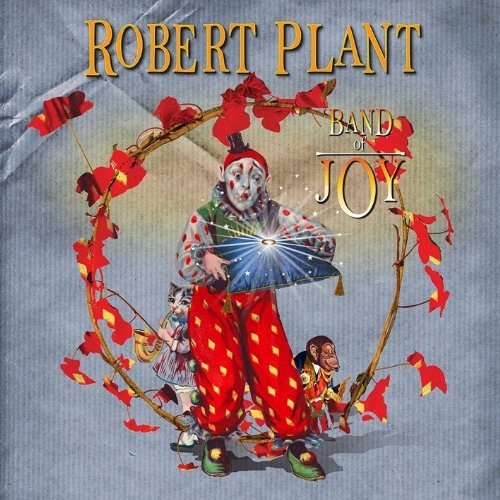Who's going to mark my time?
 Sunday, September 12, 2010 at 9:35PM
Sunday, September 12, 2010 at 9:35PM Songs can make us cry for many different reasons. The reasons are often personal, evoking particular memories or associations from our past. Over time songs become part of our lives, and their roots can twirl around some sensitive nerves.
But it seems special when a song bring tears to your eyes the first time you hear it. How does that happen?
I was having breakfast this morning, reading the paper… secure in the knowledge that there was a solid door between the dog and my record collection…listening to Robert Plant’s new album Band of Joy, which has been deservedly collecting four and five star reviews.

Robert & co’s gorgeous cover of Townes Van Zandt’s 'Harm’s Swift Way' came on and my eyes were full before they hit the first chorus. What was going on?
A number of things, I think.
It helps that these are wonderful performers, on fine form, in a congenial setting. Robert Plant still has one of the great, and truly distinctive, rock voices, as well as a happy knack for assembling talented bands and giving them their head. The combination of his control and power, Patty Griffin’s harmonies and Buddy Miller’s reverb-drenched guitar is hard to resist – the whole album has a sound that draws you in.
And Townes was a great writer, too, with a catalogue to die for – and there’s a pretty good case for saying that’s exactly what he did. This song is an obscurity, written late in his life and not featuring on any of his official albums. I hadn’t heard it before. It’s a classic of his bruised-cowboy-loner-romantic persona: unsurprising, but unequivocally right country chord changes, coupled with lyrics that are sometimes slightly clumsy and asking for an edit, but mostly just smack you in the face with the raw reality of lives messed up and all too short:
There is a home out of harm’s swift way
I set myself to find
I swore to my love I would bring her there
Then I left my love behind...
Oh me, oh my,
Who's going to count my time?...
The road is past, tomorrow the sky
Between sometimes is blinding.
Someday soon when I turn to cloud
I will fly on her wings somehow…
Oh me, oh my,
Who's going to mark my time?
Mortality is a key thread. The skull beneath the skin, peeking out unexpectedly. The stretch of our lives and their richness - as well as a reminder that, however long and rich they are, they have limits.

Led Zeppelin have a particular place in my affections. In the summer of 1970, when I was thirteen, I was just getting to grips with the world of rock and its ‘sea of possibility’, as Patti Smith subsequently nailed it. On a family holiday in distinctly untrendy Bude, North Cornwall, I was completely taken by a poster of theirs, despite never having heard the music. A few months later I was a proud owner of the third album - and smitten as soon as the noise of the run-in groove translated into 'Immigrant Song'. It lived up to the image, and had a great sleeve, as well. Whatever else has come and gone , Zeppelin have always held a special place as the band who got hard rock unequivocally right and carried that constant potential to explode through into their tautly controlled acoustic songs.
So another factor here is how Robert Plant’s voice has been part of my and many others’ musical landscape for so long. He rubs our noses in that longevity very nicely in a live recording of the current Band of Joy in Memphis, Tennessee a few weeks ago (which seems very readily available on the internet). The name Band of Joy is a reprise of that of the group he and the late John Bonham had in the sixties (and for which, if you'll pardon the impossible-to-avoid diversion, Noddy Holder once roadied...). So there is bound to be a slight air of memento mori about this incarnation, whatever the freshness and difference of the current band. Robert Plant presses that button lightly but gloriously effectively as the band leave the stage after their last pre-encore number – a wonderful reinvention of 'Gallows Pole' from Zeppelin III – ‘See you in 43 years’, he says.
Suddenly, we're potholers, emerging from a narrow tunnel into an echoing underground chamber. It’s an insertion of depth and dimension in a medium whose default setting is the immediate and emphemeral. But not in a way that evokes the dead hand and formaldehyde of ‘classic rock’: this is the living, breathing stuff, not a museum piece.
Give it a go and see how it strikes you. As another great man once said:
Either I’m too sensitive
Or else I’m getting soft.
Reader Comments (1)
You've always been soft Dad